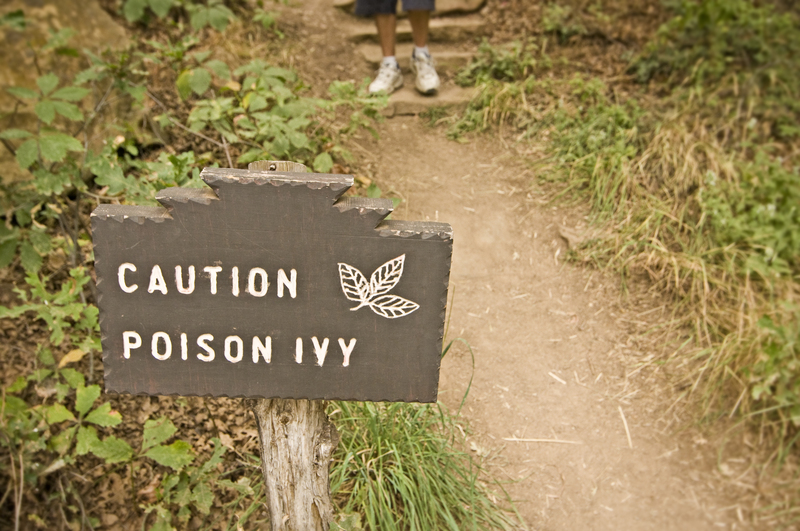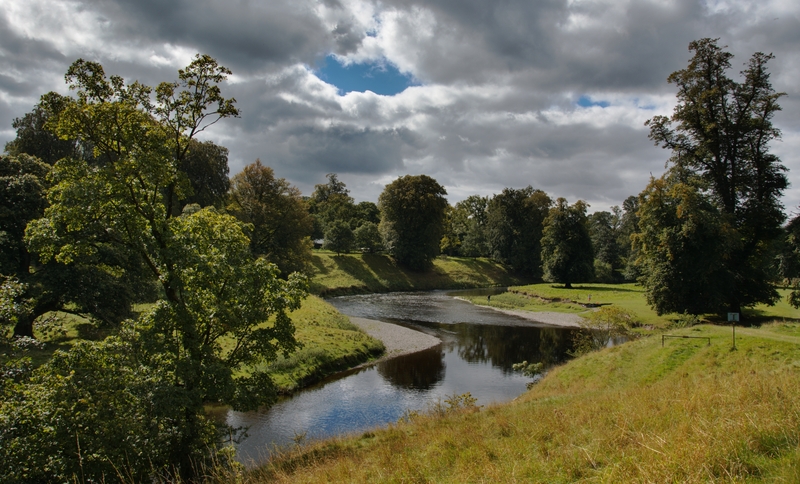9 Gardening Tips to Elevate Your Beginner Experience
Posted on 28/08/2025
9 Gardening Tips to Elevate Your Beginner Experience
Starting your journey as a gardener is an exciting adventure filled with opportunities to nurture, experiment, and enjoy the beauty and bounty of nature. Whether your goal is to grow fresh vegetables, colorful flowers, or create a tranquil outdoor retreat, these gardening tips for beginners will help you succeed. Unlock the secrets to a flourishing and enjoyable garden by following these nine essential tips designed to elevate your gardening experience!

1. Plan Your Garden Wisely
Before digging into the soil, investing time in planning will pay off in the long run.
Strategic garden design ensures optimal plant growth and minimizes maintenance hassles.
Consider Location and Sunlight
- Assess your space: Observe how much sunlight different areas of your yard receive throughout the day.
- Match plants with sunlight needs: Most vegetables and fruits require at least 6-8 hours of direct sunlight.
- Proximity to water: Ensure your garden is close to a water source for easy irrigation.
Decide What to Plant
- Choose plants suited to your climate zone. Start with easy-growing plants like marigolds, lettuce, radishes, or basil.
- Consider a mix of annuals and perennials for continued blooms or harvests throughout the seasons.
2. Start with Quality Soil
Soil health is the foundation of a thriving garden. Plants depend on nutrient-rich, well-draining soil to develop strong roots and resist disease.
Tips to Improve Your Soil
- Test your soil: Use a simple soil testing kit to check for pH and nutrients.
- Add organic matter: Mix compost, peat moss, or decomposed leaves into the soil to boost fertility.
- Avoid compacting: Avoid walking on garden beds and use raised beds to protect soil structure.
Remember, healthy soil leads to robust plants and a more satisfying gardening experience for beginners and pros alike!
3. Select the Right Tools
A beginner gardener doesn't need a shed full of equipment. Focus on a few essential gardening tools that will make your tasks easier and more efficient.
- Hand trowel - Perfect for digging, planting, and weeding.
- Pruning shears - Essential for trimming dead heads and shaping plants.
- Watering can or hose - Opt for one with a gentle shower nozzle.
- Garden gloves - Protects hands from thorns, splinters, and soil-borne microbes.
- Rake - Keeps your beds tidy and aerated.
Invest in quality, ergonomic tools to avoid strain and discomfort. Well-maintained equipment not only lasts longer but also makes gardening more enjoyable.
4. Master the Art of Watering
Proper watering is a key element in the success of your garden. Overwatering can be just as damaging as underwatering!
Effective Watering Techniques for Beginners
- Water early in the morning to reduce evaporation and prevent fungal growth.
- Check soil moisture before watering -- stick your finger about two inches into the soil; if it feels dry, water thoroughly.
- Water at the base of each plant to ensure roots absorb moisture and to avoid wetting the leaves (which promotes disease).
- Mulch your beds to retain soil moisture and suppress weeds.
Smart watering practices help plants develop deep roots and resilience, crucial for beginner gardening success.
5. Understand Plant Needs and Spacing
Each plant has specific requirements for sunlight, water, and nutrients. Taking the time to learn these needs is one of the best gardening tips for beginners.
- Read seed packets or plant labels: They contain valuable information on light, water, and spacing requirements.
- Practice proper spacing: Overcrowded plants are prone to disease and compete for resources, resulting in poor growth.
- Rotate crops if growing vegetables: Prevents the buildup of soil-borne diseases and nutrient depletion.
Doing a little research before planting pays big dividends in healthier, happier plants!
6. Keep Pests in Check--Naturally
Pests and diseases can be discouraging for new gardeners. But with a proactive, eco-friendly approach, you can minimize damage and foster a flourishing garden ecosystem.
Natural Pest Management Strategies
- Attract beneficial insects: Ladybugs, lacewings, and spiders naturally control common pests.
- Practice crop rotation and companion planting: For example, marigolds deter nematodes, and basil repels aphids.
- Inspect plants regularly: Look under leaves for eggs or larvae and remove them before infestations grow.
- Use barriers: Row covers and collars around seedlings protect from insect attack.
- Homemade remedies: A mild soap spray can often defeat aphids and mites without harsh chemicals.
By fostering biodiversity, you contribute to a healthier garden and environment over time.
7. Practice Consistent Maintenance
A flourishing garden requires regular attention. Develop a weekly gardening routine to stay ahead of weeds, pests, and plant health issues.
- Weed frequently: Pull weeds while they're small to prevent competition for nutrients and water.
- Deadhead flowers: Removing spent blooms encourages new growth and a longer flowering season.
- Prune as needed: Shape plants and remove damaged, diseased, or crossing branches.
- Monitor for pests and diseases: Early detection means easier management and less damage.
- Apply mulch: Replace or replenish as needed to conserve moisture and suppress weeds.
Staying proactive rather than reactive gives beginner gardeners the greatest chance at gardening glory.
8. Educate Yourself Continually
The gardening world is vast, and there is always something new to learn! The more you know, the easier it is to solve problems and achieve beautiful results.
Ways to Grow Your Gardening Knowledge
- Read gardening books and magazines for inspiration and advice.
- Join online forums or local gardening clubs to connect with seasoned gardeners.
- Attend workshops and community gardening events for hands-on experience.
- Keep a garden journal: Document your successes, failures, and observations each season.
Learning is part of the joy of gardening, and every season brings new lessons and rewards!
9. Be Patient and Celebrate Progress
It's easy to be impatient, especially when your vision doesn't immediately match reality. But gardening is a journey--and every step forward is progress.
- Recognize that mistakes are learning opportunities. Even the most experienced gardeners face setbacks!
- Celebrate milestones: Your first sprout, bloom, or harvest is an achievement worth savoring.
- Take before-and-after photos to appreciate your hard work over time.
- Share your experiences: Inspire and encourage others by sharing your gardening stories with friends, family, or online communities.
Patience and a positive attitude nurture your passion and make the gardening experience truly rewarding.
Bonus Tip: Sustainable Gardening Practices
- Compost your kitchen and yard waste to create a rich, homemade soil amendment.
- Water efficiently by using rain barrels or drip irrigation systems.
- Choose native plants: They require less maintenance and support local wildlife.
Incorporating sustainable methods elevates your beginner gardening experience and promotes a healthy planet for future generations.

Frequently Asked Questions for Beginner Gardeners
What is the easiest plant for beginners to grow?
Some of the easiest plants for new gardeners include lettuce, radishes, zinnias, sunflowers, pansies, and marigolds. These plants germinate quickly and adapt to a variety of soil types and conditions.
How much should a beginner gardener water their plants?
Most garden plants prefer deep, infrequent watering to promote deep root growth. Water when the top two inches of soil are dry, typically aiming for 1-2 inches of water per week, including rainfall.
Do I need fertilizer as a beginner?
It depends on your soil. If you start with healthy, compost-rich soil, many annuals and vegetables thrive without chemical fertilizers. Organic options like compost or manure offer a gentle nutrient boost and improve soil texture.
Is it better to start with seeds or plants?
For absolute beginners, starting with young plants (also called transplants or starts) from a nursery is often easier. Seeds can be fun and economical, but some (like tomatoes and peppers) require more care to germinate and grow strong indoors before outdoor planting.
Conclusion
Embarking on your first gardening adventure can be both thrilling and overwhelming. By implementing these 9 essential gardening tips for beginners, you set the stage for a successful, satisfying, and enjoyable gardening experience. Remember, every garden--no matter how small--is a place to learn, experiment, and grow. Whether you have a patio, a backyard, or a balcony, your green-thumb aspirations are just waiting for you to dig in and flourish.
Happy gardening!
Latest Posts
First Steps in Garden Revival: Your Makeover Guide
Five Expert Tips to Protect Your Garden from Extreme Weather
Creating a Wonder-Filled and Child-Accommodating Garden



